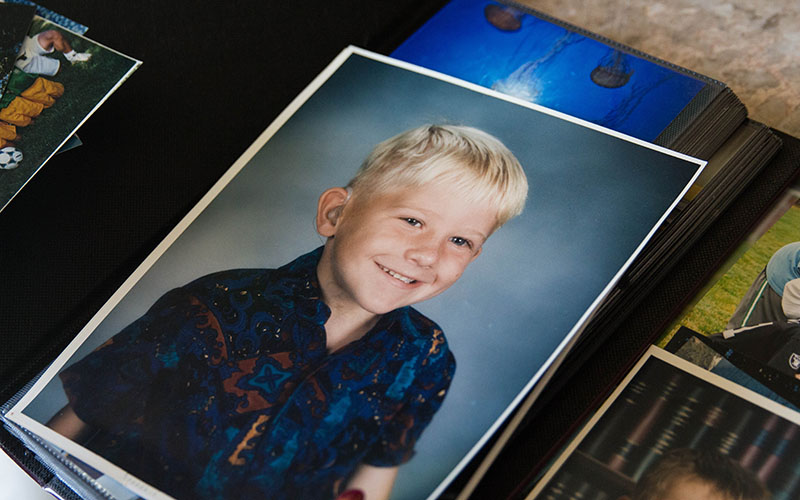
A childhood photo of Zach Giron, who died by suicide on May 2, 2015 at age 26. (Photo by Tynin Fries/Cronkite News)
PHOENIX — On May 2, 2015, Zach Giron died by suicide. Since then, his mother Gina Gillis has struggled to grieve for her 26-year-old son, asking questions that have no answers.
Gillis is what the American Foundation for Suicide Prevention (AFSP) calls a suicide survivor, someone who has experienced loss through suicide. There are millions of suicide survivors around the world and on Nov. 18, some will gather to support each other on International Survivors of Suicide Loss Day.
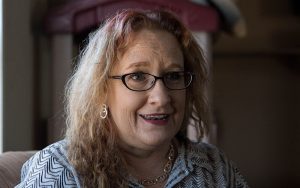
Gina Gillis is the social media ambassador at the American Foundation for Suicide Prevention’s Arizona chapter. She started volunteering a year after losing her son to suicide. (Photo by Tynin Fries/Cronkite News)
This year, events in Sierra Vista and Phoenix will show a film by the AFSP called “The Journey: A Story of Healing and Hope.” Survivors can also watch the events through AFSP’s Facebook page.
After seeking help and support from AFSP a year after her son died, Gillis began to get even more involved. Now she is the social media ambassador for the AFSP Arizona chapter, where she works every day to prevent more loss.
AFSP and other organizations offer support groups and counseling services for families or friends who experience suicide loss. However, one of the major problems, Gillis said, is that many suicide survivors aren’t aware of the resources available to them.
“I didn’t go to any support groups for the whole first year because I didn’t know there were any,” Gillis said. “I didn’t know where to go for help. I was completely lost.”
Support groups can help survivors relate to what AFSP calls a grief journey. For survivors like Gillis, none of her friends or family had experience with suicide loss, so she felt alone.
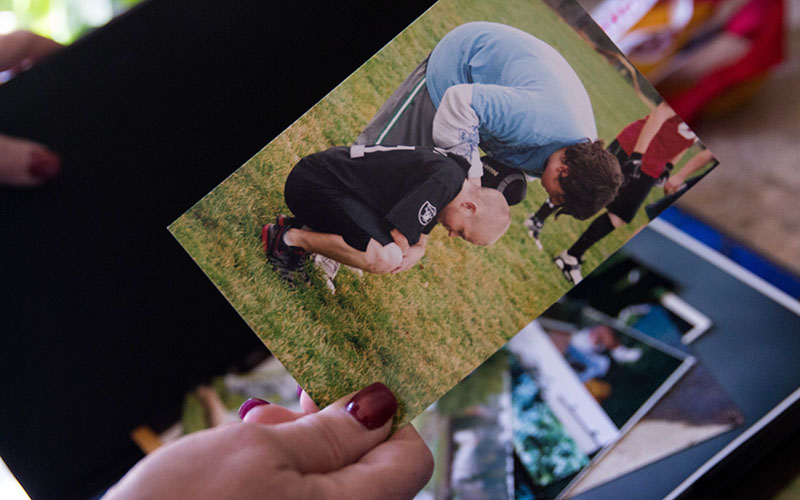
Gina Gillis shows her favorite picture of her sons, Zach and Cameron. This is a photo she feels captures her son Zach (bottom) before the depression. (Photo by Tynin Fries/Cronkite News)
“They had lost other people whether it was a child or parent but never lost anyone to suicide. It was completely outside of everyone’s realm of understanding,” Gillis said. “It was helpful just knowing that there are other people who have felt same pain and they got through it. They got up and they were alive.”
Gillis has become a strong advocate for not only suicide prevention but talking about mental illness. Helping others get help gives her a sense of purpose, she said.
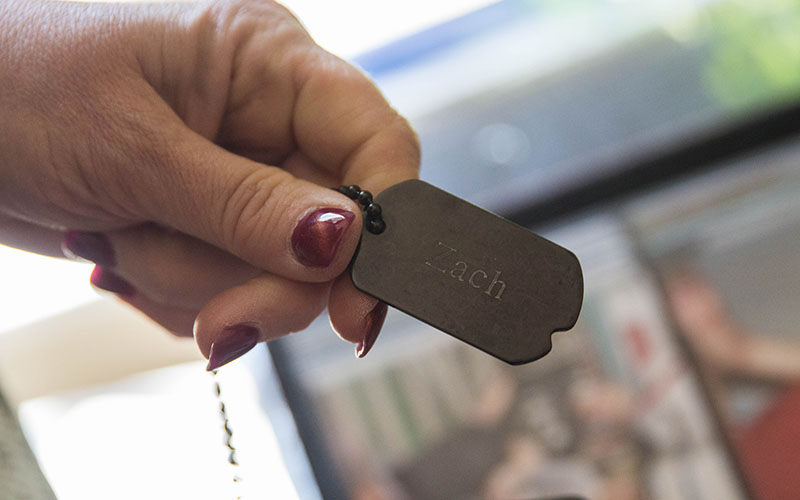
Gina Gillis carries around a dog tag with her son’s name on it, one of the ways she grieves for Zach Giron daily she said. (Photo by Tynin Fries/Cronkite News)
“I don’t want to see anybody else go through what we went through because it’s incredibly awful,” Gillis said. “You always have to assume you’re the only one who’s going to do anything. You have to assume that they are serious. Never take it lightly.”
Gillis is still grieving for her son and said that may not end anytime soon. The biggest question she asks is: why?
“It’s a matter of learning how to remember him without grieving him,” Gillis said, “but that’s the way that grief is: it’s bipolar. I’m forever going to want to know why, and it’s never going to come and I have to accept that.”
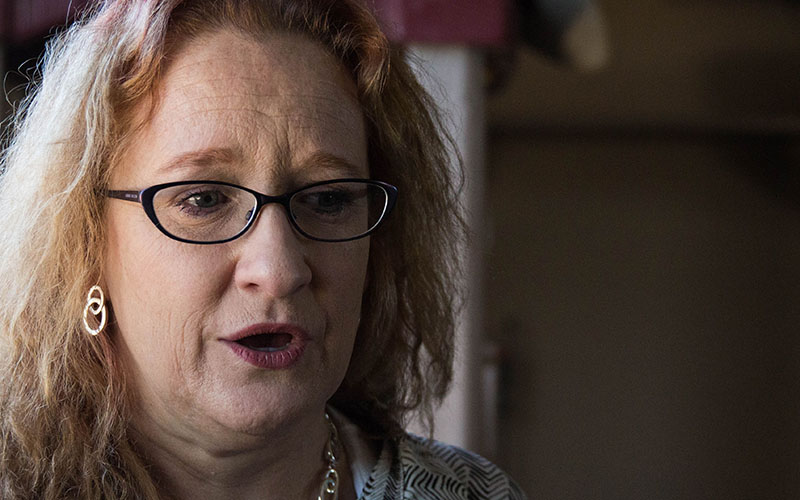
On May 2, 2015, Gina Gillis’s son Zach Giron died by suicide. “I had a lifetime to get to know Zach and I miss him every single day,” she said. (Photo by Tynin Fries/Cronkite News)
According to the Center for Disease Control, someone in Arizona dies from suicide every seven hours. The impact of even one suicide can ripple through communities. In Zach Giron’s case, dozens of his family and friends were affected by his death and are still grieving for his loss.
One of the things Gillis still struggles with is the unanswered questions. She will never know why her son committed suicide and yet she still tries to find the answer.
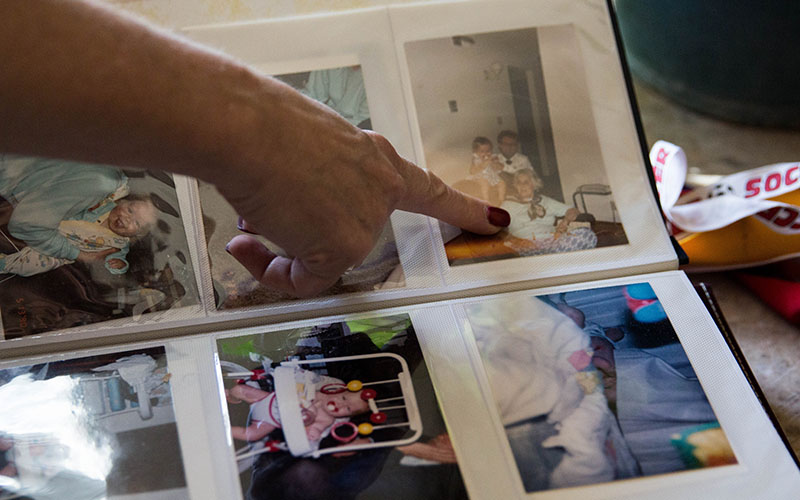
Gina Gillis looks through albums for her photos of her son Zach Giron, who she lost to suicide in May 2015 when he was 26. (Photo by Tynin Fries/Cronkite News)
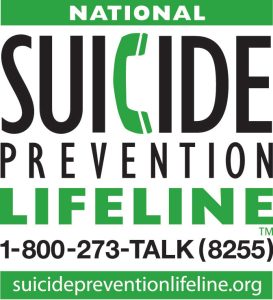
The National Suicide Prevention Lifeline is 1-800-273-8255, or the Crisis Text Line can be accessed by texting TALK to 741741
When Gillis sees an old picture of her son, she said she always looks at his face. She is trying to find out when his pain started. She looks at pictures when he was 15 years old and says “See, he doesn’t look depressed there.”
If Gillis’ work with ANSP can help even one person, she said that’s what matters.
“I like to think that I’m helping to make a dent by spreading the word via social media,” Gillis said. “If even one person has access to that crisis number who didn’t have it before, that’s one more person who is going to be equipped with more knowledge.”